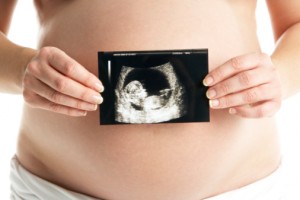
Pregnancy can be a beautiful time in a woman’s life – it’s the moment when a woman has the opportunity to bring new life into the world. Although pregnancy is a joyous occasion, it can also bring with it risks and complications that all women should be made aware of.
Here is a roundup of Bel Marra Health’s top pregnancy news stories and the research and breakthroughs that came along with it.
Pregnancy Innovations: Placenta-on-a chip designed to throw new light on pregnancy
Researchers have designed new technology to answer previously unknown questions about pregnancy.
The aim of this innovation is to study the inner workings of the human placenta and the role it plays during the human gestation period. The chip is designed to imitate the placenta on a micro-level and model the transfer of nutrients from mother to fetus.
“We believe that this technology may be used to address questions that are difficult to answer with current placenta model systems and help enable research on pregnancy and its complications,” said Roberto Romero, chief of the NICHD’s Perinatology Research Branch and study co-author. Learn More
Pregnancy Perceptions: TV shows impacting women’s perceptions on pregnancy
Recent research shows that women are gaining skewed pregnancy perceptions from the media.
In a recent study, researchers looked at the impact of television on creating patient expectations, especially regarding pregnancy and birth.
The study, led by Danielle Bessett, an assistant professor of sociology in the McMicken College of Arts and Sciences at the University of Cincinnati, took a closer look at how women decoded television content regarding pregnancy and birth.
As part of the study Bessett analyzed 64 pregnant women from the greater New York and Connecticut metropolitan area over a two year period. The participants were from different races and socioeconomic backgrounds. Learn More
Blood Pressure and Pregnancy: High blood pressure in pregnancy linked to family risk
A study suggests that high blood pressure during pregnancy can increase risk of heart complications.
Although the findings suggest women with high blood pressure while pregnant can experience health complications later in life, they did not determine the cause and effect of the association.
The long-term study involved over 900 brothers and 1,500 sisters in 954 sibling groups across America. Women with high blood pressure during pregnancy are at a 75 percent greater risk of developing high blood pressure in their later years, this compared to pregnant women without high blood pressure. Learn More
Pregnancy Risks: Autism risk in children increased with antidepressants taken during pregnancy
Recent research found that taking antidepressants during pregnancy increases autism risk.
Antidepressants are used to treat depression, and autism spectrum disorder is a neurodevelopmental syndrome involving altered communication, language and social interaction.
Researchers explored data of pregnancies and children in Quebec, Canada between 1998 and 2009. The authors identified 1,054 children with autism from 145,456 births. Age of onset for autism was roughly 4.6 years old, and there were four times as many boys with autism than girls.
Of the group, 4,724 children were exposed to antidepressants in utero – 4,200 during the first trimester, 2,532 in the second or third trimester. The group exposed to antidepressants in the second or third trimester produced 30 children with autism and the first trimester group produced 40. Learn More
Deficiency and Pregnancy: Iodine deficiency role in goiters, hypothyroidism and pregnancy-related problems
Iodine deficiency can lead to pregnancy-related problems.
The body does not produce iodine; therefore, you must supplement it in your diet. Iodine is commonly found in iodized table salt, multivitamins, dairy products, soy milk and soy sauce, and saltwater products, such as seafood and seaweed.
If you are low in iodine, you can have an iodine deficiency and not only does this cause problems for the thyroid – iodine is essential for proper thyroid function – but it can also lead to pregnancy-related problems as well. Learn More